Pregnancy Complications
Infant- and Family-Centered Developmental Care
Respiratory Infections
Neonatal Eye Health
Hygiene
Rare Diseases
Zero Separation is a global awareness campaign advocating for the rights of preterm and sick newborns to remain close to their parents. Originally launched by GLANCE (Global Alliance for Newborn Care), the campaign now continues under the umbrella of the Global Foundation for the Care of Newborn Infants (GFCNI), formerly known as EFCNI.
Separation is harmful for the whole family! When babies and parents are separated, not only the infants are stressed, but also the parents get stressed and depressed. They have more difficulties taking care of the baby and interacting with their child, which has consequences for the baby’s development.
Our Zero Separation campaign aims to support parents of hospitalized newborns and healthcare professionals working in neonatal care units. Its mission is to promote infant- and family-centered developmental care, ensuring that parents can stay with their babies around the clock.
Each year, Zero Separation highlights a unique topic that reinforces the importance of keeping babies and parents together—because separation can have lasting consequences.
We don’t yet know what 2025 or 2026 will bring, but our commitment to Zero Separation remains the same. This page will continue to evolve with new content and resources, so stay tuned.
In 2024, the focus expanded to the design of Neonatal Intensive Care Units (NICUs) and how thoughtful design can support infant- and family-centered developmental care (IFCDC).
How can the design of the NICU support infant- and family-centered developmental care and a Zero Separation approach?
The design of the neonatal intensive care unit (NICU) is a very important part of newborn health. By utilising key design elements, neonatal care can be optimised and promote the family as primary care givers throughout the stay.
A carefully planned NICU design and architecture enables:
promotes physical closeness (#ZeroSeparation).
The right architectural choices empower parents to be present in the NICU and to be actively involved in the care of their baby from the start. They encourage early bonding and lots of skin-to-skin contact, improving outcomes for those born too soon or sick and their families.
To achieve the best design for optimal care, it is recommended to involve everyone in the planning process of a neonatal intensive care unit, including staff, parents, hospital administration, and NICU planners. Different opinions may exist between these groups, but it is important to consider all perspectives.
In 2023 the campaign emphasized Kangaroo Mother Care (KMC), a WHO-recommended, evidence-based practice for the care of preterm (<37 weeks gestation) and low-birth-weight infants (<2.5 kg). KMC involves immediate and prolonged skin-to-skin contact (8–24 hours per day) and support for exclusive breastfeeding or breast milk feeding.
Kangaroo Mother Care benefits both, the baby and the parents:
Zero Separation. Together for Better Care! started as a global research initiative that examined the impact of the COVID-19 pandemic on infant and family-centered developmental care (IFCDC) in neonatal units (NICUs). The project was led by GFCNI (formerly EFCNI) and GLANCE, and gathered insights from over 2,100 parents across 56 countries who faced care disruptions during this critical period. The findings highlight major challenges, including limited parental access, mental health struggles, and issues with infant nutrition. The study underscores the urgent need for a zero separation policy and the consistent application of IFCDC, even in times of crisis.
Every year, millions of preterm and sick newborns face the uncertainty of hospitalization in neonatal intensive care units (NICUs). While the clinical focus is often on survival, these early beginnings leave lasting impressions—not just physically, but emotionally, psychologically, and socially.
These stories highlight more than survival—they speak to resilience, the value of family-centered care, and the critical role of parent-infant closeness in early life. Through the Zero Separation campaign, we advocate for systems, policies, and NICU designs that respect and prioritize these essential bonds.
Want to share your story? We’re always looking to feature voices from around the world. Contact us via email or social media!
From Preemies to Future Health Care Professionals
Lal and Piril Okay, twin sisters born preterm at 30 weeks of gestation in the late 1990s in Turkey, have transformed their early life experience into a source of strength and inspiration. Today, both are pursuing careers in medicine, driven by a unique perspective shaped by their own NICU journey and their parents’ experience.
As future healthcare professionals, Lal and Piril not only understand the medical challenges of caring for preterm infants, but also deeply empathize with the emotional struggles faced by parents during hospitalization.
In a heartfelt video statement originally created for GLANCE, they share how their preterm birth may have influenced their personalities in comparison to peers born at term. They also reflect on the realities of neonatal intensive care units (NICUs) around the world—particularly the distress caused by limited parental access.
“Parents wait anxiously behind closed doors. We encourage policymakers to consider the social, emotional, and developmental impacts of separating sick and preterm babies from the only people they know in the world.”
As passionate supporters of the Zero Separation campaign, Lal and Piril use their voices to advocate for unrestricted parental presence in the NICU—even during global health crises like the COVID-19 pandemic. Their message is clear: parents and newborns belong together.
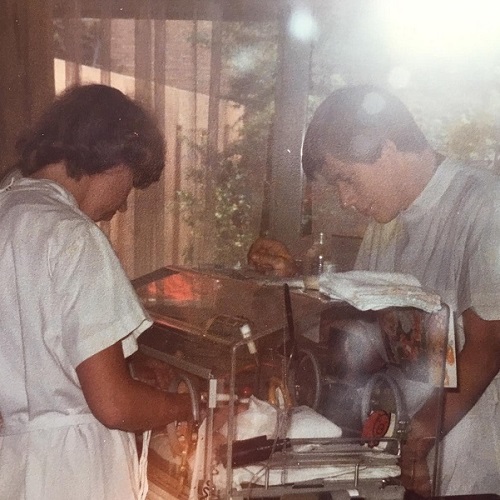
“It Was a Matter of Life and Death”
What happens when parents are separated from their newborn too soon? In this emotional interview, Joke, Theo, and their daughter Juliëtte Kamphuis - born very preterm in the 1980s - reflect on the long-term impact of early separation and the vital role of parental presence in neonatal care. Their story powerfully supports the "Zero Separation. Together for better care" campaign.
Read the full interview with the Kamphuis family here.
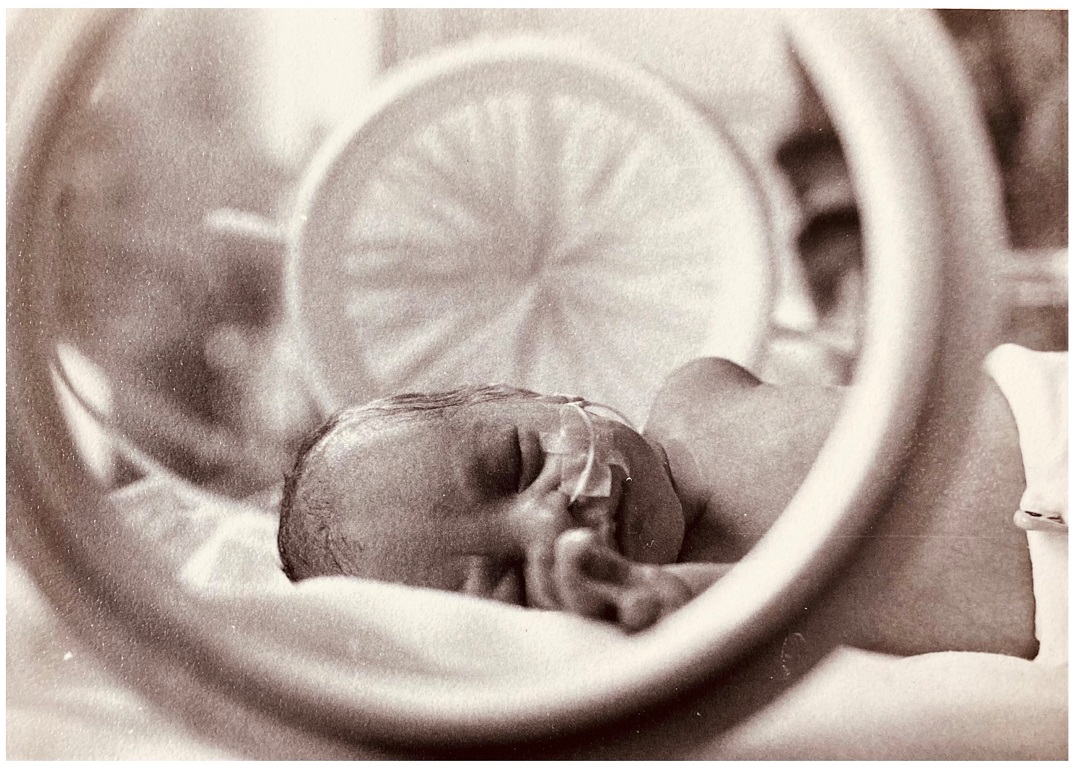
How Early Separation Can Shape Lives
What are the long-term effects of being separated from your parents at birth? In this powerful interview, Ingeborg Anna Martens shares her personal story as a former preterm baby and how early separation shaped her life. Her insights highlight the urgent need for family-centered care and support the message of the "Zero Separation. Together for Better Care" campaign.
Read the full interview with Ingeborg Anna Martens (The Netherlands) here.
When a baby is born too soon or too sick, the experience is life-altering for the whole family. Parents of preterm and hospitalized newborns are often faced with uncertainty, fear, and emotional exhaustion—compounded by policies that separate them from their baby. But their voices are powerful.
In this section, we share personal stories from parents who have lived through the NICU experience and champion the mission of Zero Separation: to keep parents and babies together from the very beginning.
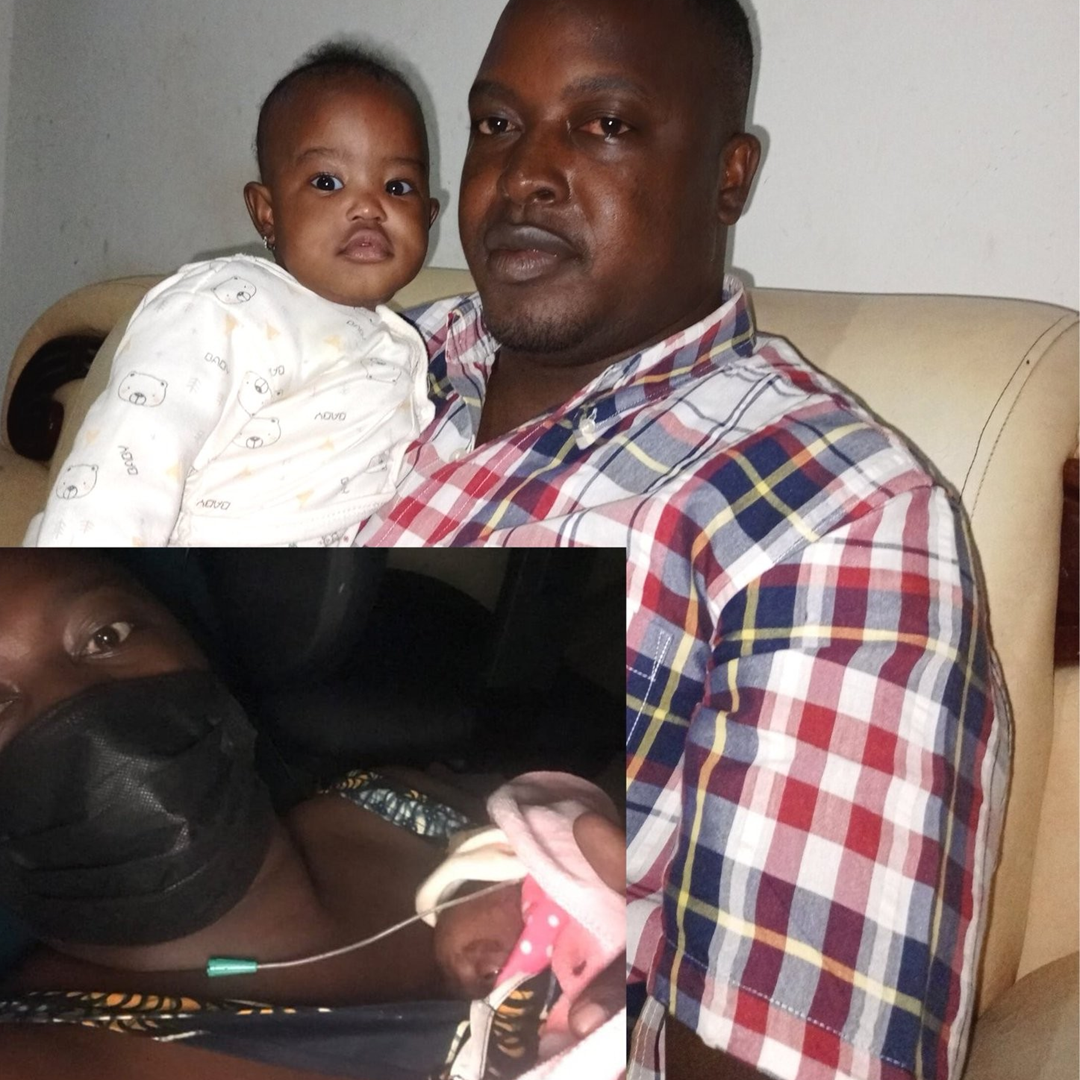
– Trigger warning: child loss –
A Father's Journey Through Loss, Hope, and Kangaroo Mother Care
"My wife and I went to Mulago National Referral Hospital for an antenatal scan—we were extremely happy and curious to know the sex of our baby. The scan was done, and we were told that we were having twins, which made us cry with happiness! But in that moment of joy, the doctor informed us that one baby had complications and was unlikely to survive. Two weeks later, we lost one of the twins. However, we had to keep both twins in the womb for another month, waiting for the surviving baby to gain weight. The pain of carrying one deceased baby and one alive was almost unbearable.
Luckily, we were able to deliver the other twin—a baby girl weighing 900g. Our hospital had a very high rate of preterm births (3 out of 10), which came with challenges such as limited NICU beds and CPA machines, adding to everyone’s stress levels. The nurse had to make space for our baby. However, we were fortunate that in Uganda, parents are not separated from their babies in the NICU! So, we were able to feed our baby every 2 hours, which helped create a strong bond between us and her.
After 2 weeks, we were introduced to Kangaroo Mother Care, and we were able to do it for at least 10 hours a day. Kangaroo Care and Zero Separation were the best experiences we had in the hospital!
With limited knowledge about caring for a preterm baby—both in the hospital and at home—we were scared and worried about being discharged. In Uganda, about 50% of discharged babies die at home. To prepare and ensure the best support possible, we started a WhatsApp group to share knowledge about preterm care and later added specialists.
When we were discharged after 2 months, we continued Kangaroo Mother Care at home, which greatly helped our baby to gain weight and sleep better."
— Kateregga Bazilio, father of a surviving preterm twin girl, Uganda.
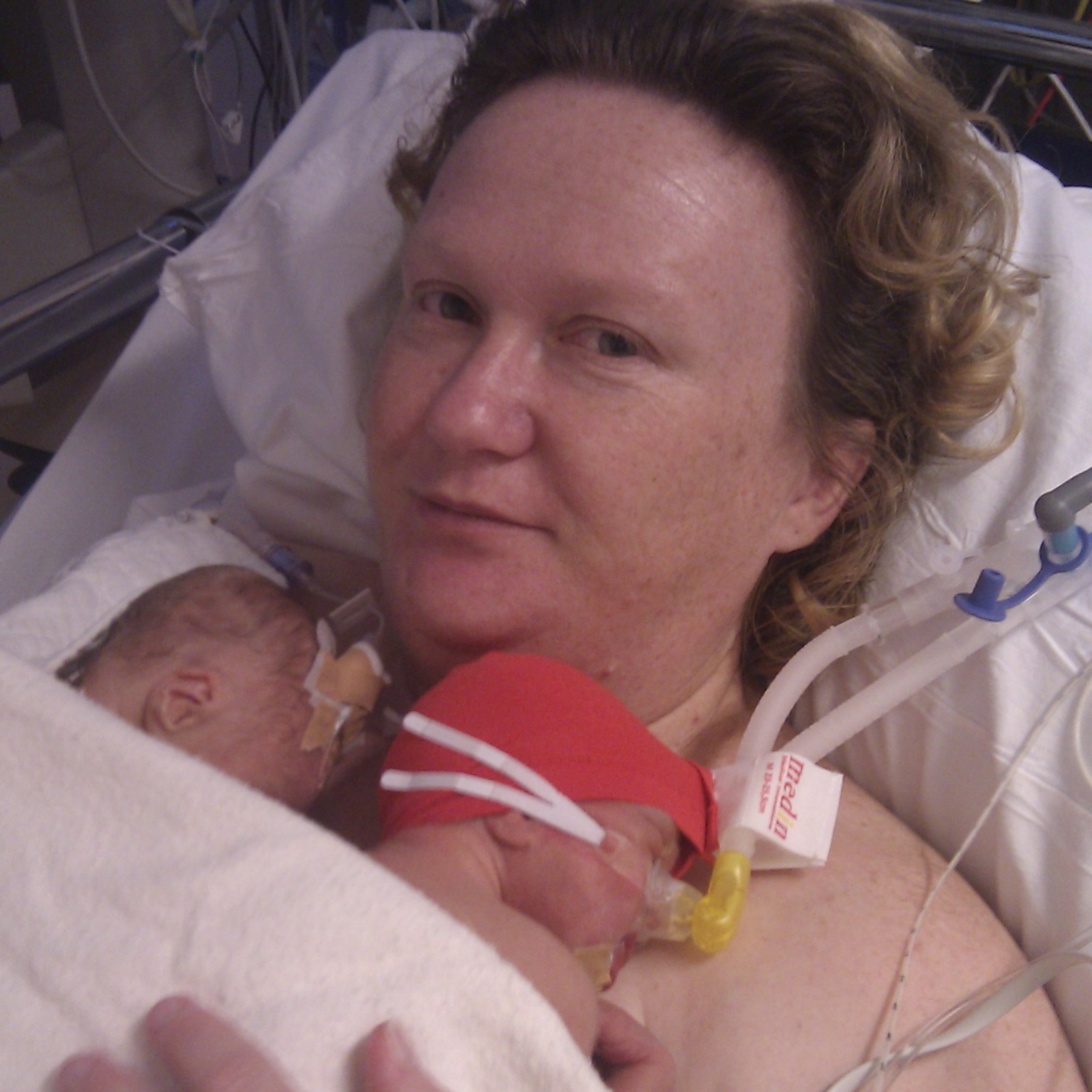
Twice the Love - A Twin Mom’s Journey with Kangaroo Mother Care
“Precious moments like the one I got to experience should be available to all multiple birth families!”
says Stephanie Ernst, as she shares her personal story of Kangaroo Mother Care (KMC).
“My name is Stephanie, and I’m the mother of identical twins born at 31 weeks with Twin Anemia Polycythemia Sequence. At the time, we had already gone through a stressful pregnancy, and with the additional challenges of the NICU and prematurity, it was hard to know how to feel—or even how to connect with my girls.
Kangaroo care was offered to us from the beginning, and through these precious moments, I was able to bond with my daughters and find comfort in knowing that it was also benefiting their health.
This photo was taken just hours after they were born, and finally—after months of uncertainty—I felt calm, knowing they were okay. We were so incredibly fortunate that both hospitals we were in promoted Kangaroo Care, even for multiple births.
It’s essential that healthcare professionals not only promote but also inform parents about KMC with twins. Many parents of multiple pregnancies experience complications and preterm birth, and it’s crucial they know that Kangaroo Care is possible—even with two.”
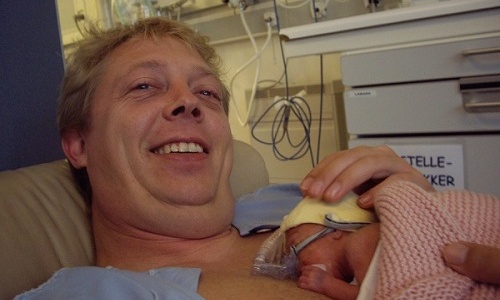
Separated But Still Dad
What happens when a father is separated from his preterm newborn in the NICU? In this honest and moving interview, Vilni Verner Holst Bloch shares his personal experience of balancing work, family, and long-distance hospital visits while coping with the emotional toll of separation. His story highlights the need for father-inclusive care and supports the message of the "Zero Separation. Together for better care" campaign.
Read the full interview with Vilni Verner Holst Bloch (Norway) here.
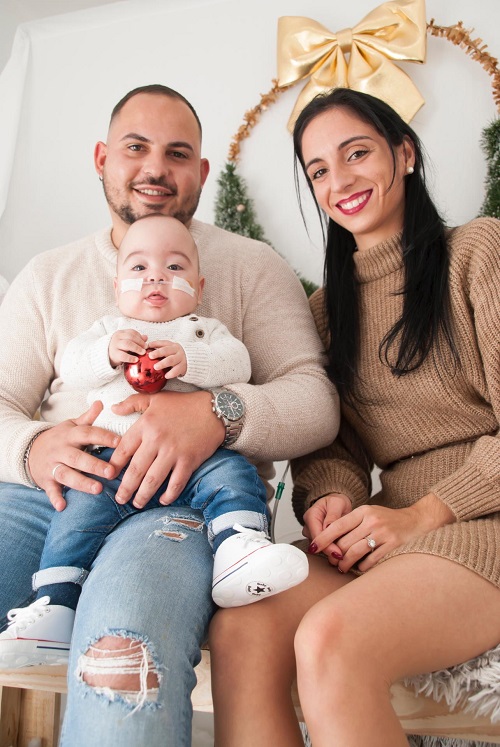
Parenting in a Pandemic
What is it like to become parents of a preterm baby during a global pandemic? In this emotional interview, Patrícia and Pedro share their journey after their son Lourenço was born at 26 weeks during the first wave of COVID-19. They reflect on fear, separation, and the power of staying present, even in the most difficult moments. Their story supports the message of the "Zero Separation. Together for better care" campaign.
Read the full interview with Patrícia Larguinho Estêvão and Pedro Filipe Silva Oliveira.
Medical professionals around the world agree: keeping parents and newborns together—especially in neonatal care—is vital for the health and well-being of both. In this section, experts share their insights on the importance of Zero Separation and the proven benefits of Kangaroo Mother Care. Their voices reinforce the growing global call for family-centered care in every hospital, everywhere.
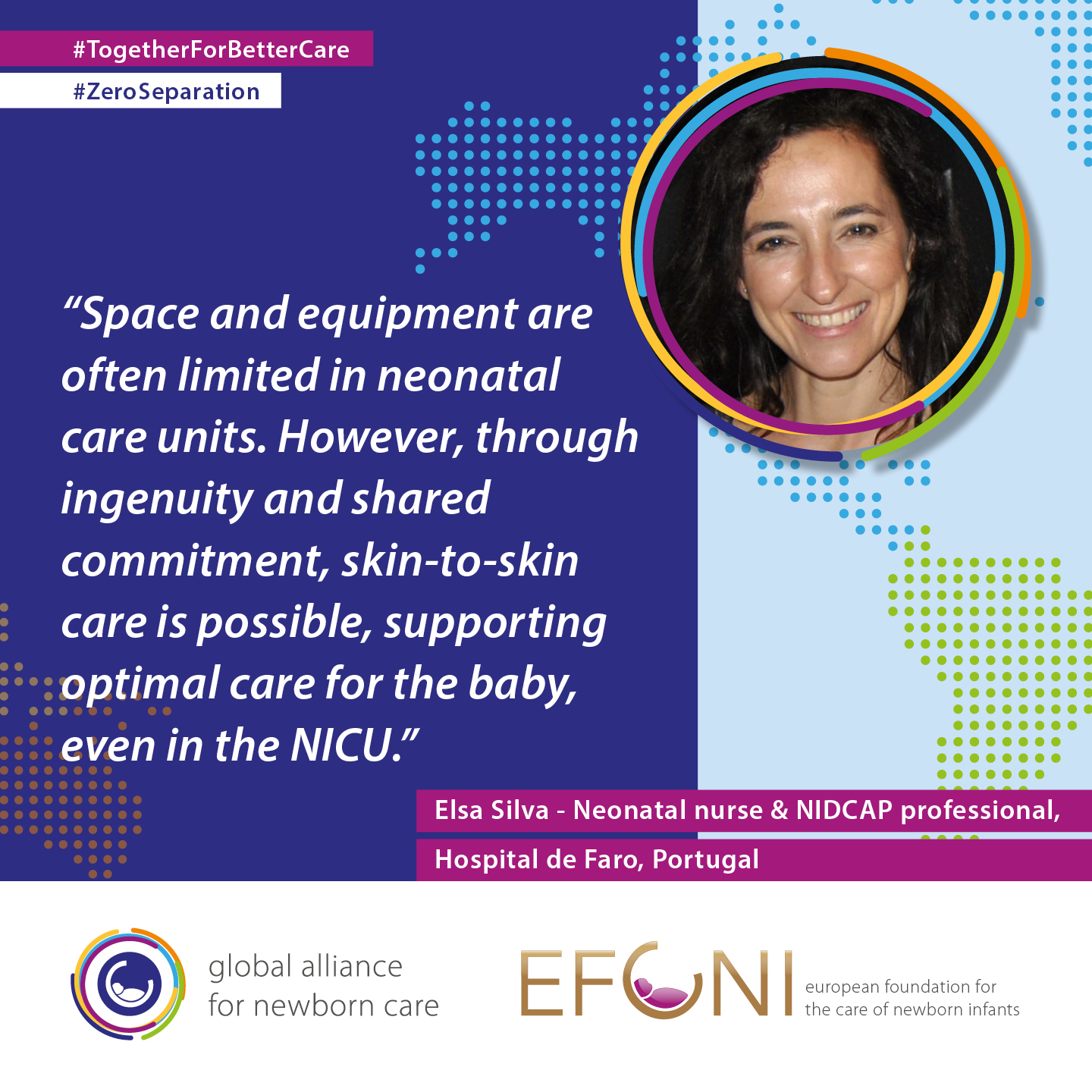
Inside the NICU - A Nurse’s Perspective on Why Babies Belong With Their Parents
Elsa Silva is a neonatal nurse and NIDCAP professional working at Hospital de Faro in Portugal. She shares her professional thoughts on the separation of babies from their parents in the neonatal intensive care unit (NICU):
"Babies in neonatal care units have feelings, rights, and needs - and they must be heard!
When babies are born healthy, they stay with their mothers in the maternity ward, and a few days later, they join the rest of the family at home. But if a baby is born preterm or sick, and needs to go to an intensive care unit or neonatal unit, they are often separated from the person and the reality they know best.
An incubator, while necessary, is not the ideal place for a newborn. Instead, a baby is best cared for through skin-to-skin contact, even in the neonatal unit.
Every effort must be made to start this care as soon as possible after birth and to continue it for as long as possible, even if space and equipment are limited.
Skin-to-skin care can be provided at no extra cost, with a little ingenuity and shared commitment.”
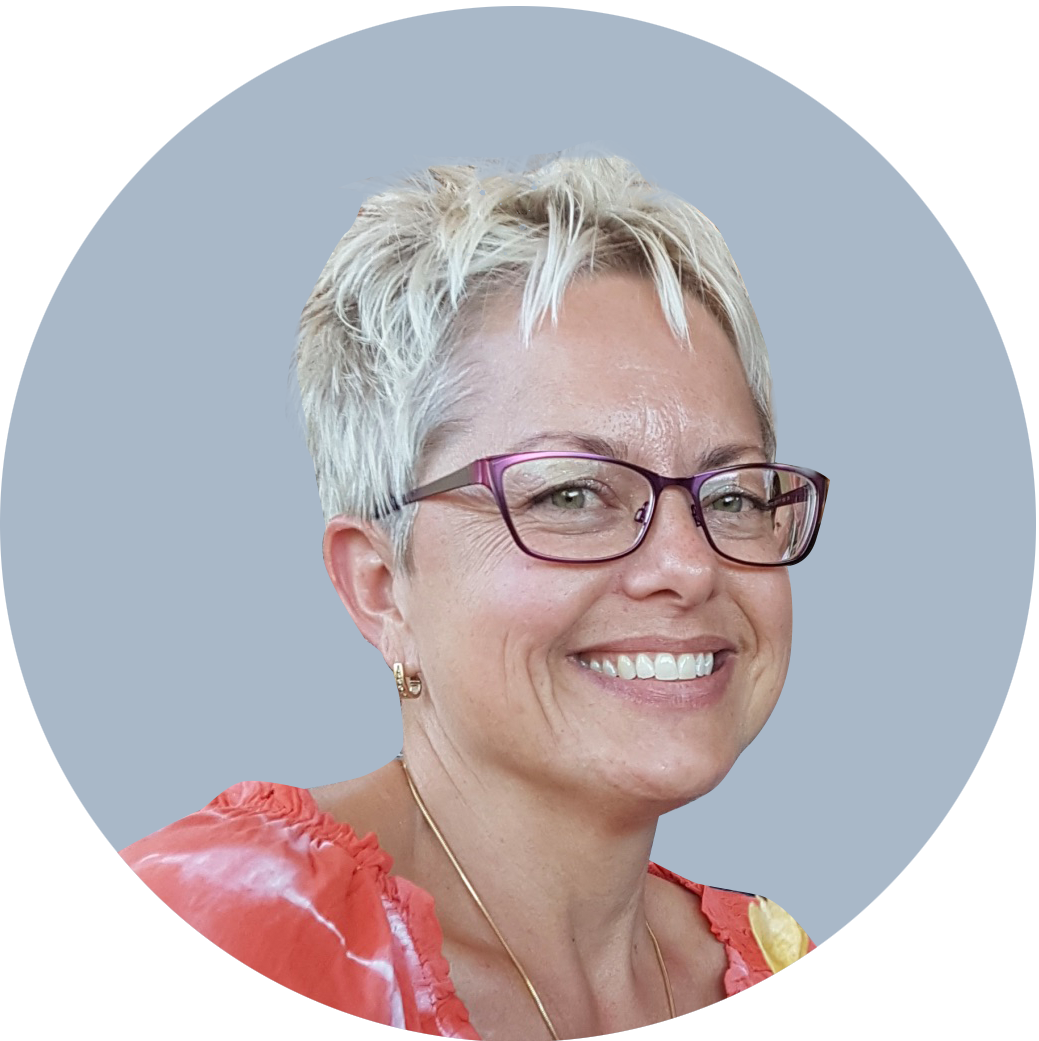
Kangaroo Mother Care in Practice - A Nurse’s Experience from Canada
“We realized we needed to educate and support our staff on why we do Kangaroo Care and how to do it safely. Now, all levels of care in our units are trained on the benefits and on transfer techniques. We also make sure to educate our parents on Kangaroo Care.”,
says Diane K.E. Schultz, a NICU nurse at St. Boniface Hospital in Winnipeg, Canada, sharing her perspective on implementing Kangaroo Mother Care.
Thank you to all supporting organizations!
We warmly thank the following parent and patient organizations for supporting and endorsing the Zero Separation campaign. Your commitment helps amplify our message and strengthens the call for infant- and family-centered developmental care around the world.
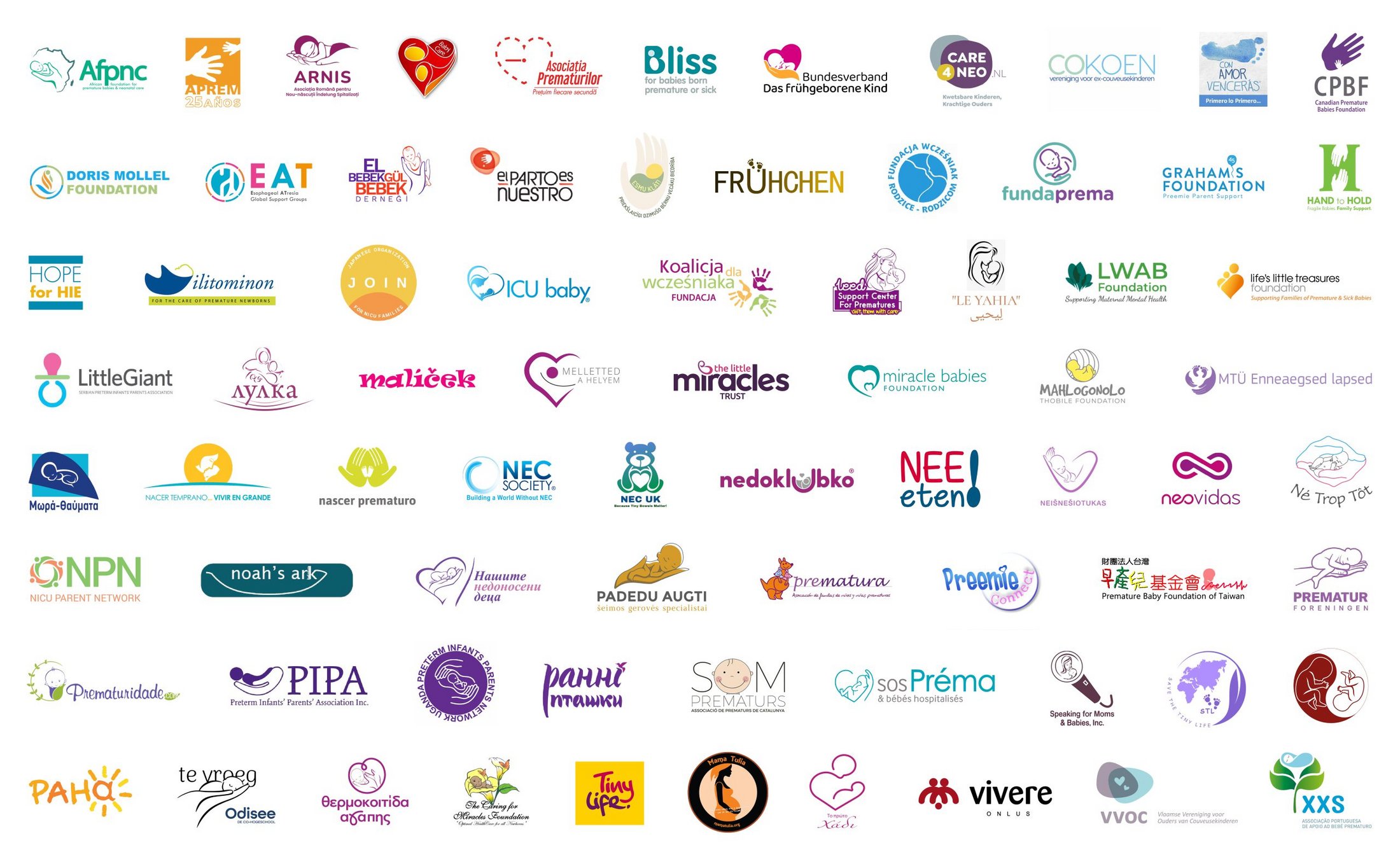
© 2025 GFCNI. All Rights Reserved.